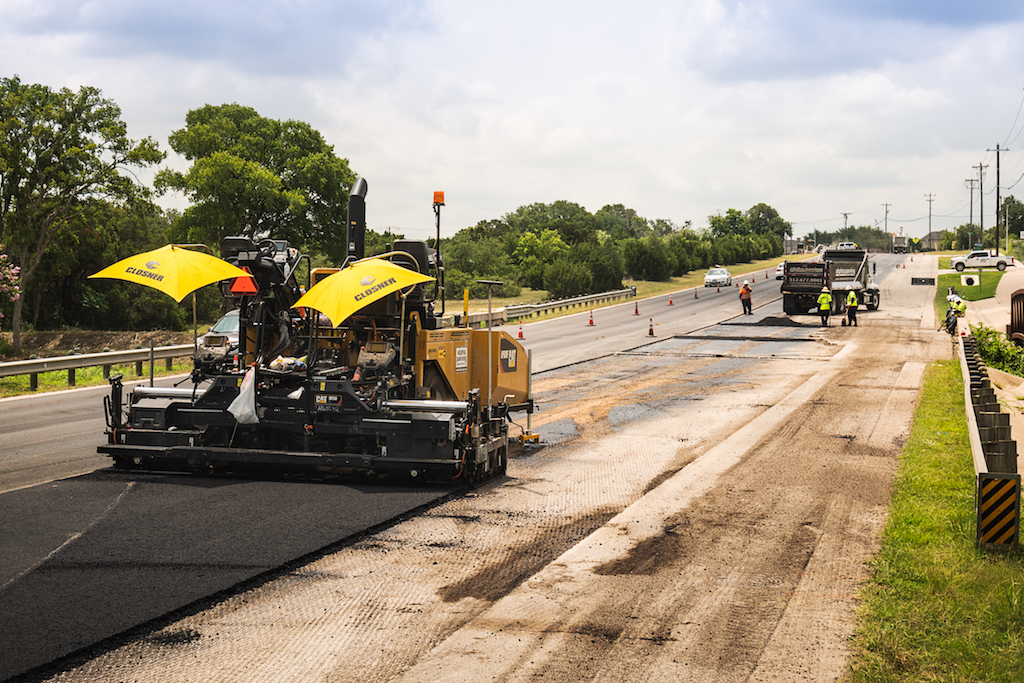Asphalt pavement is the most widely used paving material in the United States. It is popular because of its durability, versatility, and beauty as well as its cost-effectiveness. However, your asphalt contractor must design your pavement to support the types of traffic that it must bear. Otherwise, the pavement can suffer premature failure. For industrial applications, there are certain factors that must be considered when designing asphalt pavement.
Key Factors in Industrial Asphalt Paving
Truck Traffic
One 80,000-pound truck generates the equivalent wear of 9,600 passenger vehicles. Asphalt pavement that is not designed to bear such loads will quickly deteriorate if heavily loaded trucks are permitted access. On the other hand, it can be too costly to design an entire area, including the parts that bear only passenger cars, to support heavy trucks. One solution is to provide a reinforced access lane for trucks and engineer the pavement around the loading docks to the required tolerances. Also, it is not just the motion of the trucks’ wheels that wear the pavement; the area where trucks park should also be specifically designed to bear the weight while they are at rest.
Location of Dumpsters
The area around dumpsters takes a lot of abuse. The weight of the trucks is part of the problem, but these trucks have to be maneuvered into position every time. This can require multiple attempts to back it into position, and the wheels are often turned sharply. Positioning dumpsters as close to the edge of the pavement as possible and providing separate access lanes can help prevent damage. It is important to make sure that the asphalt pavement on the access lanes and around the dumpster can bear the traffic.
Bus Traffic
A bus may not weigh as much as a fully loaded truck, but they are still quite heavy. If they have access to your pavement, it must be strong enough to support their weight. Areas where they park must be given special attention as their weight can cause damage similar to the types caused by parked trucks.
Sealcoating
In an industrial setting, sealcoating is extremely important for prolonging the life of your pavement. Trucks and busses are notorious for leaking automotive fluids. Oil, diesel, gas and other petroleum-based fluids will cause premature failure of asphalt pavement if these fluids are allowed to penetrate. Sealcoating helps prevent these fluids from reaching your asphalt. New asphalt pavement should be sealcoated no sooner than 30 days and no later than 90 days after installation of the pavement to provide the best protection. Consult your asphalt professional to determine a schedule for having sealcoating reapplied periodically.
Alpha Paving Can Help
Alpha Paving has more than 30 years of experience in the asphalt industry. We are very familiar with the special considerations that are required for industrial asphalt paving. Our dedicated crews are committed to providing superior results at competitive rates to customers in Austin and many other areas in Central Texas. We offer a full range of asphalt services, including paving, asphalt sealcoating, parking lot striping, asphalt repairs and sign installation. You can submit our online form to request a free estimate, or give us a call at (737) 258-5862.




